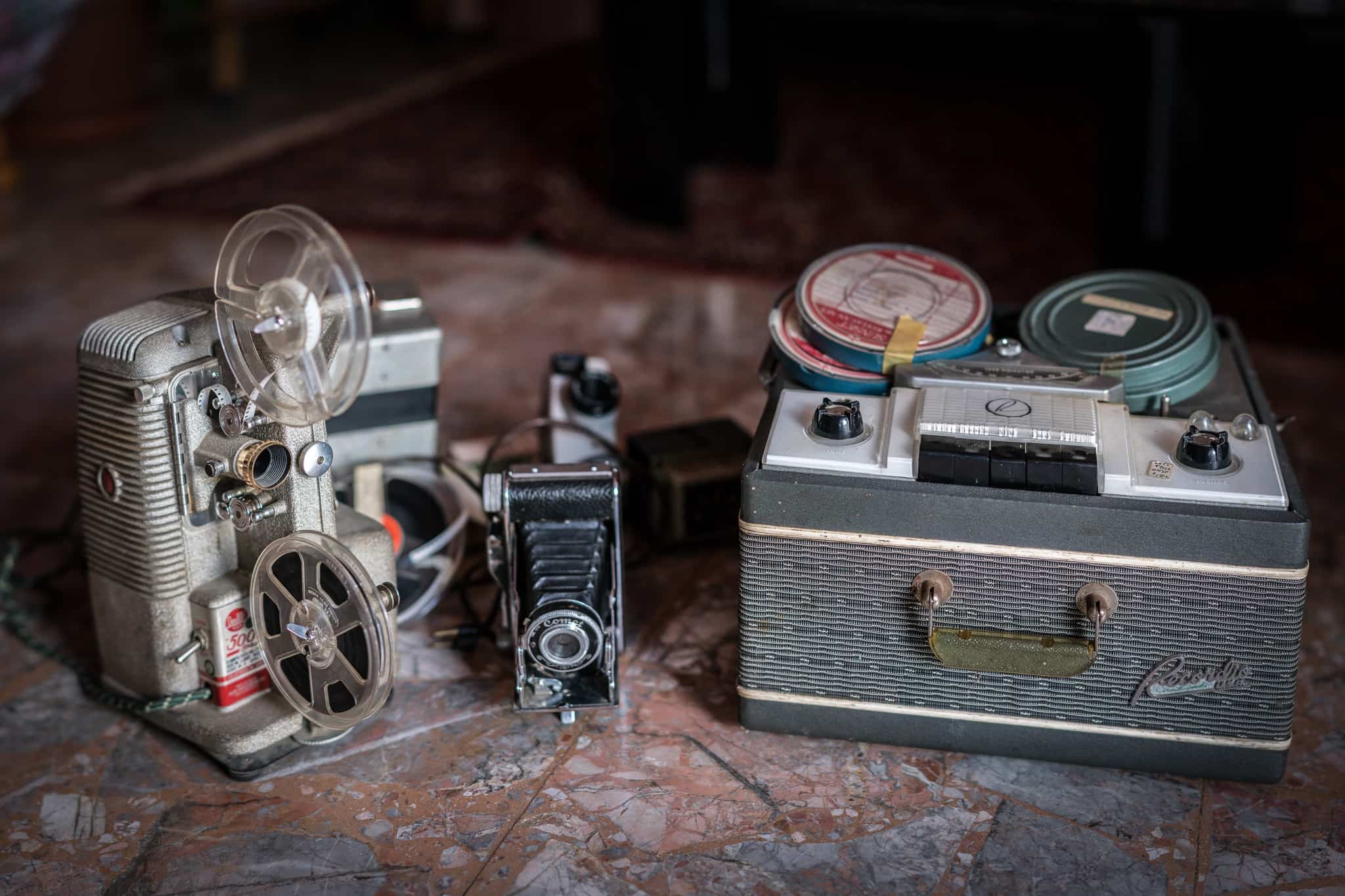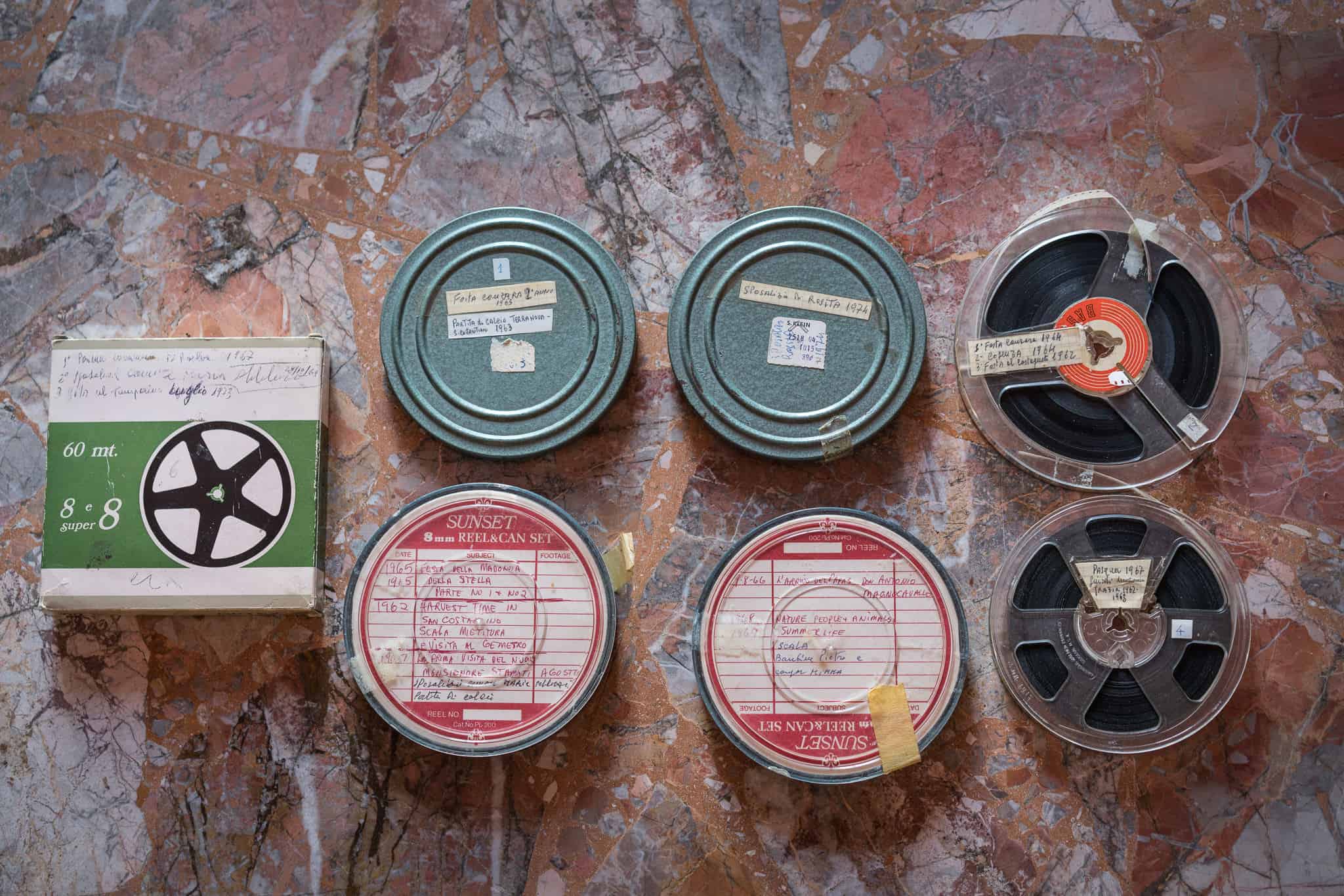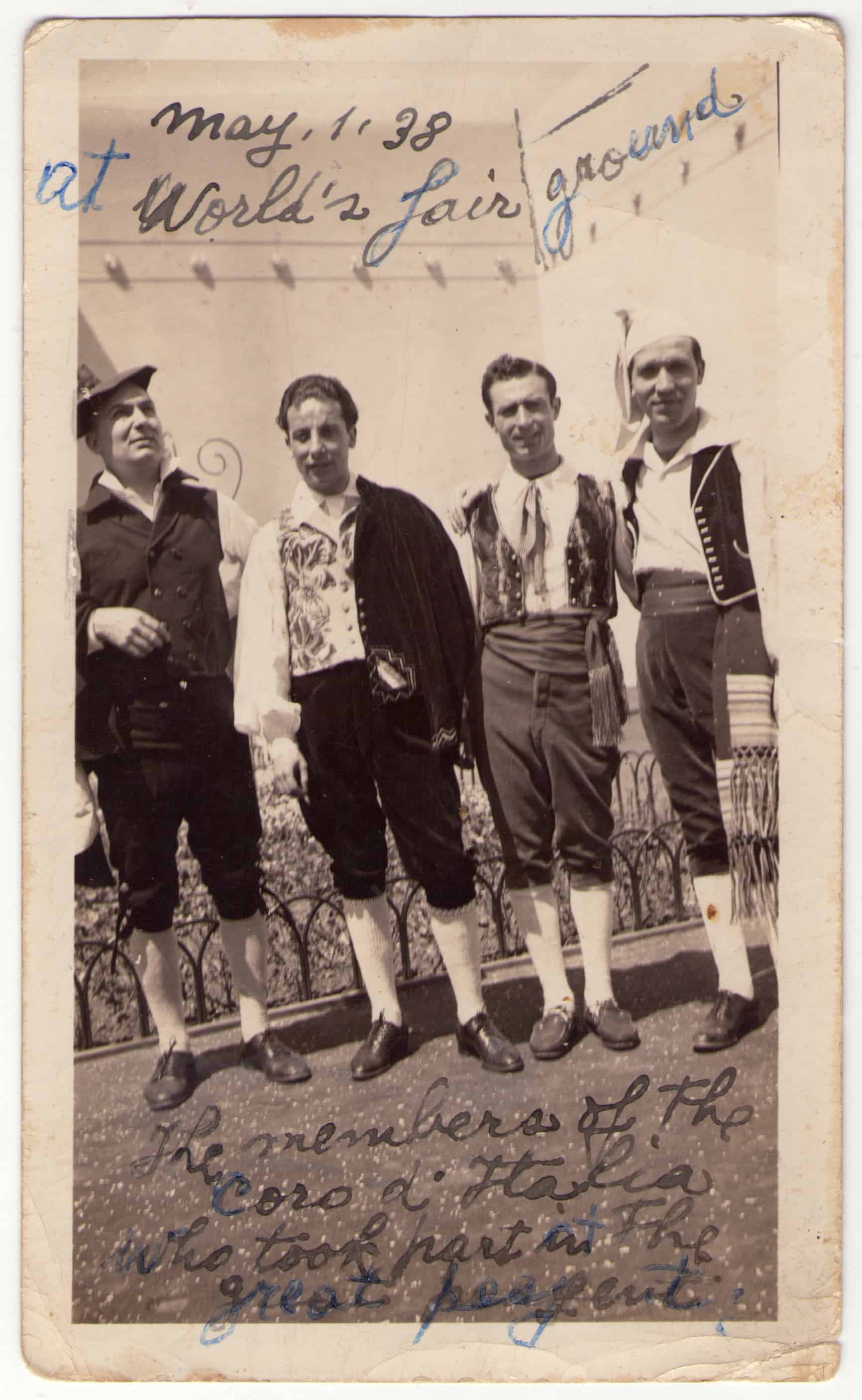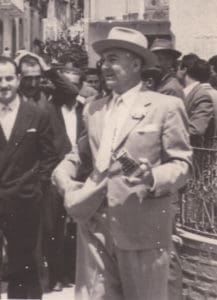Joe Chiaffitella (1900-1980, Giuseppe in civil records, and know as Peppino in Italy), an emigrant from San Costantino Albanese, moved to New York during the 1910s. In the central part of the twentieth century, every time Chiaffitella crossed the Atlantic he would carry recorded messages, music, soundscapes and soundmarks. His use of the sound recorder to create “sound souvenirs” played a role in keeping alive the connections between the people of the village and their relatives in the USA. Today he is still remembered in his village as the ‘Uncle from America’. His experience is a unique case in which various interdisciplinary issues are involved: from the theme of sound recordings and archives to ethnographic fieldwork, from historical research about Italian migration to specifically musical and linguistic research, from media studies to the issues of memory and communication. This is especially true in the case of a second-stage diaspora such as that of the Arbëresh (Italians of Albanian origin) who moved to the USA, for whom linguistic identity and oral tradition form additional layers of complexity. Chiaffitella’s sensitivity to the emotional value of sound makes his recordings pioneering in their attention for the context and the diachronic dimension, especially compared to recordings by professional researchers of his time. Chapter 5 in the upcoming book Sonic ethnography is dedicated to an analysis of Chiaffitella’s sound recordings, in the form of a textual essay, a sound-chapter and a selection of photographs from the research stage and from Chiaffitella’s vast photographic archive.
This sound-chapter, by Nicola Scaldaferri, is comprised of tape recordings made by Giuseppe Chiaffitella between 1957 and 1962 in San Costantino Albanese and in Brooklyn, New York. It is structured in three sections, each making a different use of the recordings. In the first, soundbites of voices in different languages and instrumental music are edited with a fast pace, using overlaps and cross-fades, following the model of magnetic tape compositions from the 1950s. In the second section, music is a background for speech, which is maintained in the foreground in a similar way to radio programmes. In the third section songs are in the foreground and only partially overlapped with the spoken word. Chiaffitella’s voice, speaking and singing in three different languages, acts as a common thread.
I) Sound Memories.
0:03. In English, Chiaffitella introduces a recording session in San Costantino, in order to bring voices to some American relatives. Holiday bells of the main church.
0:36. Voices of friends and relatives in Arbëresh, Italian and English.
1:08. Zampogna music performed by Pietro Laico.
2.06. Music performed by Attilio Cardone (violin), Michele Schillizzi (guitar). A nun’s speech thanking the emigrants for the money received to build a kindergarten. A speech about friendship by Antonio Scutari, future mayor of the village. Dhurana’s ritual lament for her distant daughter.
2.50. Music performed on accordion by Pasquale Scaldaferri.
3:13. The laughter of Fiorina and Nicodemo’s poem, in Brooklyn. Friends in San Costantino record their names.
II) “Terra straniera”
4:15. Domenico Chiaffitella, Giuseppe’s cousin, performs the Italian song Terra straniera [foreign country], made famous in the 1950s by singers Claudio Villa and Luciano Tajoli. At the time, the song was an anthem for the emigrants. Layered with the voice of Giuseppe Chiaffitella and with that of Agostino Canosa, who introduces a recording session with voices and songs addressed to Giuseppe from his friends “to take as souvenir across the ocean and to listen to in moments of sadness and nostalgia”.
III) Homeland as song
6:38. The song of the valle (“that will forever remain in the history of the village”, see chapter 5) performed on Easter Monday by the women of the village, layered with the voice of Chiaffitella introducing it in Arbëresh.
7:20. Male voices perform a love song accompanied by Vincenzo Carbone (accordion), Nicola Trupo (percussions) and Michelino Schillizzi (guitar): “Oh dark carnation I would like to kiss your mouth / Oh scarlet carnation I would like to kiss you all night…”
8:10. Chiaffitella and other male voices perform the religious song Christos Anesti, in Greek, announcing Christ’s resurrection in the early morning of Easter.
9:03. A song of love and nostalgia composed and sung in the USA by Chiaffitella, remembering the faraway village: “Tonight the stars are shining / like that time when I was in love / a love that flew away / and left me only a memory / When I pass by those places / and remember those kisses / my eyes fill with tears / and my heart sighs”.
Chiaffitella was born in S. Costantino Albanese (province of Potenza, Italy) in 1900; he emigrated in his youth, following in his father’s footsteps to work in New York City as a tailor at the eve of the Great War. He connected with a community of people from the same village, who had arrived along with the great migratory flows at the beginning of the century. Thanks to frequent trips back to his hometown, he was committed to keeping alive his Southern roots, and to preserving the relations between the village and the migrant community by helping to facilitate family reunions, teaching English, organizing musical events, writing and translating letters, sharing photographs, playing recordings with songs and voices of friends and relatives staying far away.
The generosity and nearly spasmodic effort made by Chiaffitella, especially in support of young people, is also likely product of a tragic life event. In 1943, his only son, thirteen years old, died of illness in the village, while Chiaffitella was in the United States. At that time contacts were interrupted because of the war, and the father would find out about his son’s death only some years later; he then entered into a deep crisis and was beset – perhaps for the rest of his life – by a deep anxiety about the barriers of geographical distance.
Chiaffitella was a sports fan and an amatorial musician; for many years he was a member of the Coro d’Italia, founded at Casa Italiana, Columbia University. After the war, he created the football pitch in his hometown, so that the local youths had a place to play.
The key token of Chiaffitella’s mission is a significant corpus of audio tapes, 8mm films, hundreds of photographs, letters, pages of a diary and scores. All these materials are preserved by his relatives to this day in the home village and recently has been digitized.





